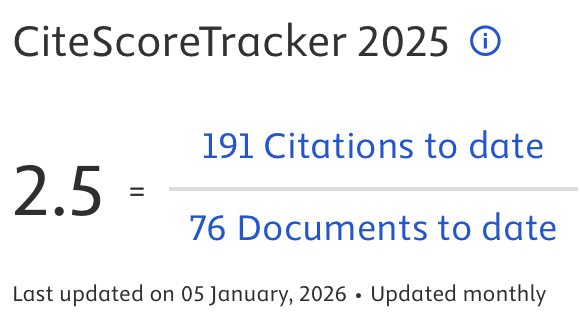POLEMIK KAIDAH KULLU ṢAḤABAH ‘UDÛL DAN KONTRIBUSI IBN ABÎ ḤÂTIM AL-RÂZÎ DI BIDANG ILMU JARḤ WA TA’DÎL
DOI:
https://doi.org/10.14421/qh.2018.1902-06Keywords:
Ibn Abi Hatim, Jarh, Ta'dil, Hadis, UdulAbstract
The discussion in this paper focuses on the contributions of Ibn Abî Hâtim al-Razi in the Jarh wa Ta'dil Science. This paper comes from library research. The method that used is descriptive-history-analysis. With this intellectual history approach, this paper finds that Ibn Abî Hâtim al-Razi's biggest contribution is seen in some basic theories of jarh wa ta'dil, ie the collective ta'dil which then develops into the theory of “kullu shahabah udul” (all of the companions are fairness), objectification of the evaluation of the narrators of the hadith, and the rating of the narrators of the hadith, both in terms of jarh and ta'dil. Ibn Abi Hatim divided the ranks both on ta'dil or tajrih of hadiths narrators into four levels, those who doubt the critics of the hadith, the fair narrators, the strong history, the content of the report, the religion, the guardianship of the hadith, and the fearful, the truthful and the wizards, but sometimes mistaken, and Being honest and frank, but a lot of things go wrong.
Keywordi: Ibn Abî Ḥâtim, Jarḥ, Ta’dîl, Hadis, ‘Udûl
References
Abi Hâtim, Abd al-Raḥmân bin Muḥammad. al-Jarḥ wa Ta‘dîl. Beirut: Dâr Iḥyâ’ al-Turath al-‘Arabî, 1952 M.
Abî Shaybah, Abd Allah bin Muḥammad bin. al-Muṣannaf. Riyadh: Maktabah al-Rusyd, 1409 H.
Bukhârî (al), Muḥammad bin Ismâ’il. ṣaḥîḥ al-Bukhârî. Beirut: Dâr Ṭûq al-Najâh, 1422.
Dhahabî (al), Abû Abd Allah Muḥammad bin Aḥmad. Sîr ‘A’lâm al-Nubâla’. Beirut: Mu’assasah al-Risalah, 1985.
Dhahabî (al), Muḥammad bin Aḥmad. al-Kabâ’ir. Beirut: Dâr al-Nadwah al-Jadîdah, ttp.
Dhahabî (al), Muḥammad bin Aḥmad. al-Muntaqâ fî Sard al-Kunâ. Madinah al-Munawwarah: Muthâba’ al-Jâmi‘ah al-Islâmiyyah, 1408 H.
ḥajjâj (al), Muslim bin. ṣaḥîḥ Muslim. Beirut: Dâr ‘Iḥyâ’ al-Turâth al-‘Arabî.
Hâkim (al), Muḥammad bin Abd Allah Abû Abd al-Allh. al-Mustadrak ‘alâ ṣaḥîḥayn. Beirut: Dar al-Kutub al-'Ilmiyyah.
Kathîr, Ismâ’il bin Umar bin. Tafsîr Ibn Kathîr. Beirut: Dar al-Fikr, 1401 H.
Khatîb (al), Muḥammad ‘Ajjâj. Uṣûl al-ḥâdith: ‘Ulûmuh wa Musṭalâhuh. Beirut: Dâr al-Fikr, 1989.
Kuntowijoyo. Metodologi Sejarah. Yogyakarta: Tiara Wacana, 2003.
Lutfi, Achmad. “Pemikiran Ibnu Hatim al-Razi: Melacak Perkembangan Awal Kritisisme Hadits” Jurnal al-Qur'an dan Hadits, Vol. 7, No. 2. Juli 2006.
Najwah, Nurun. “Benarkah Konsep Kullu Shahabah ‘Udul itu Final?”, Jurnal al-Qur'an dan Hadits, Vol. 6. No. 2. Juli 2005.
Suyuṭî (al), Jalâl al-Dîn. Tadrîb al-Râwî fî Sharḥ Taqrîb al-Nawawî. Beirut: Dâr al-Fikr, 1988.
Tamîmî (al), Abd al-Raḥmân bin Muḥammad. Tafsîr al-Qur’an al-‘Aẓîm li Ibn Abî ḥâtim. Saudi Arabia: Maktabah Nazzâr Muṣṭafâ al-Bâz, 1419 H.
Tirmidhî (al), Muḥammad bin ‘Isâ. Sunan al-Tirmidhî. Beirut: Dâr al-Gharb al-Islâmî, 1998.
Downloads
Published
Issue
Section
License
Publishing your paper with Jurnal Studi Ilmu-ilmu al-Qur'an dan Hadis means that the author or authors retain the copyright in the paper. Jurnal Studi Ilmu-ilmu al-Qur'an dan Hadis uses license CC-BY-NC-ND or an equivalent license as the optimal license for the publication, distribution, use, and reuse of scholarly works. This license permits anyone to copy and redistribute the material in any medium or format and must give appropriate credit, provide a link to the license, and indicate if changes were made. If you remix, translate, transform or build upon the material you may use it for private use only and not for distribution. Jurnal Studi Ilmu-ilmu al-Qur'an dan Hadis granted an exclusive non-commercial reuse license by the author(s), but the author(s) are able to put the paper onto a website, distribute it to colleagues, give it to students, use it in your thesis, etc, so long as the use is not directed at a commercial advantage or toward private monetary gain. The author(s) can reuse the figures and tables and other information contained in their paper published by Jurnal Studi Ilmu-ilmu al-Qur'an dan Hadis in future papers or work without having to ask anyone for permission, provided that the figures, tables, or other information that is included in the new paper or work properly references the published paper as the source of the figures, tables or other information, and the new paper or work is not direct at a private monetary gain or commercial advantage.
Jurnal Studi Ilmu-ilmu al-Qur'an dan Hadis journal Open Acces articles are distrubuted under the Creative Commons Attribution-NonCommercial-NoDerivatives 4.0 International (CC BY-NC-ND 4.0). Article can be read, copy and redistribute the material ini any medium or format under the following conditions:
Attribution — You must give appropriate credit, provide a link to the license, and indicate if changes were made. You may do so in any reasonable manner, but not in any way that suggests the licensor endorses you or your use.
NonCommercial — You may not use the material for commercial purposes.
NoDerivatives — If you remix, transform, or build upon the material, you may not distribute the modified material.









